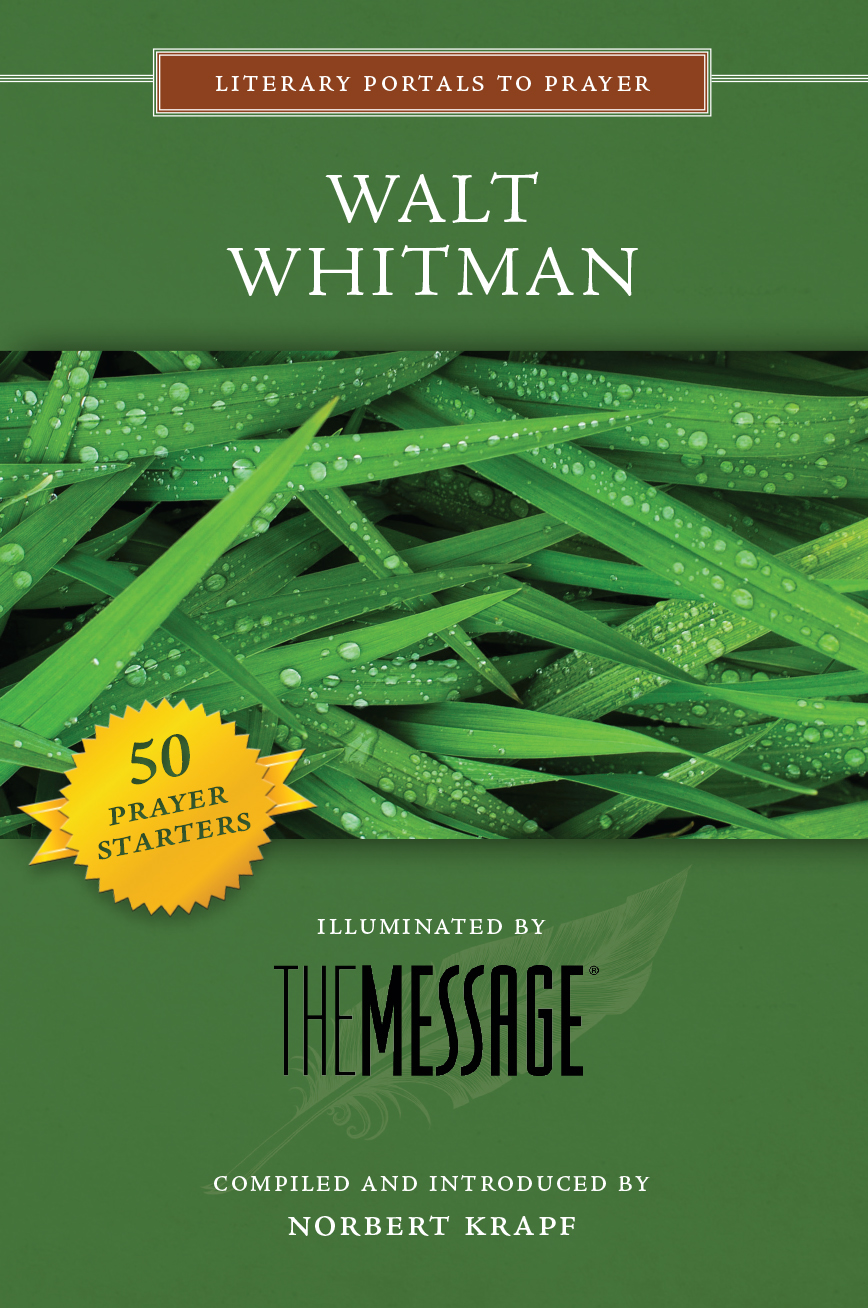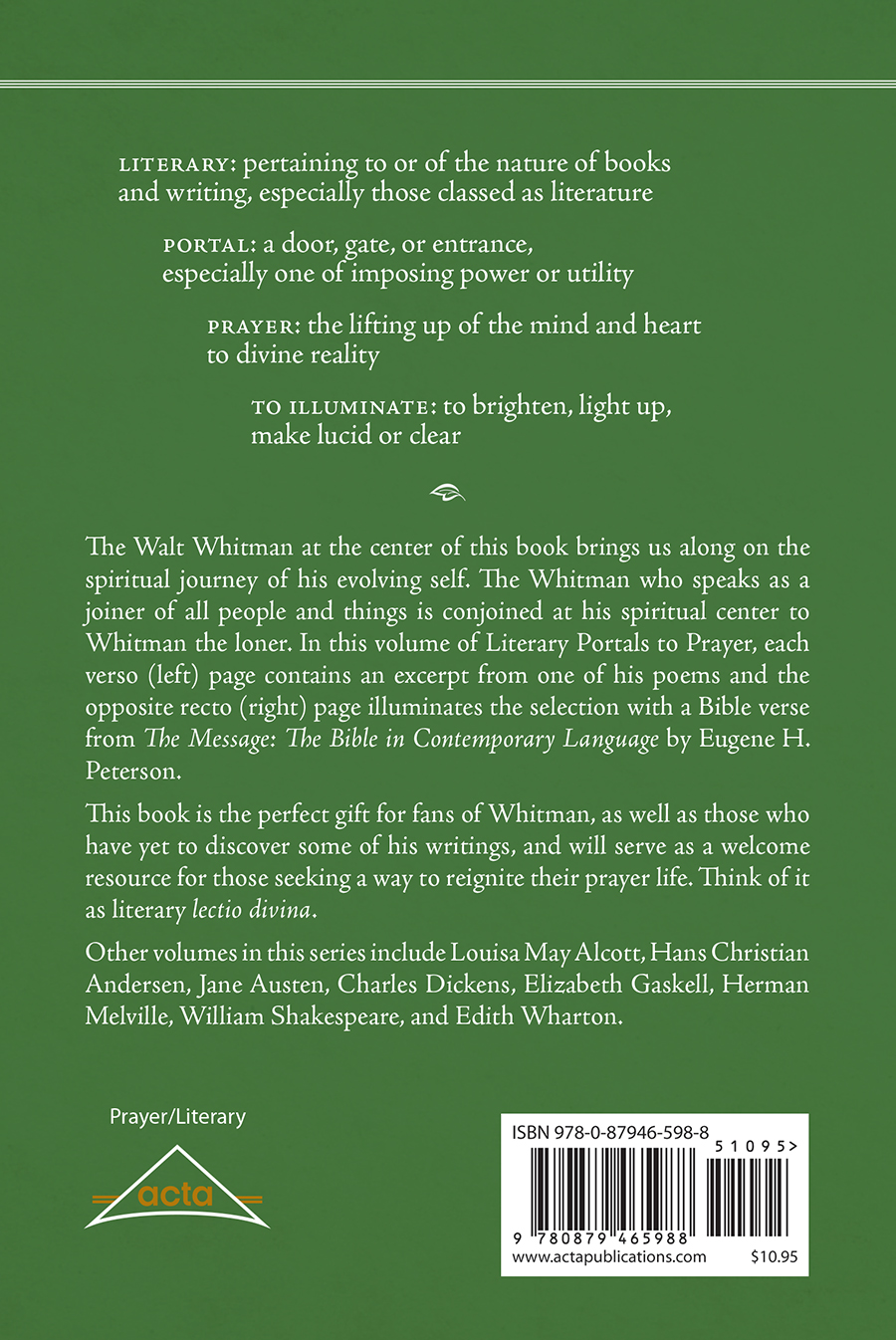 |
 |
| Click images to enlarge | |
WALT WHITMAN, ILLUMINATED BY THE MESSAGE
Compiled and introduced by Norbert Krapf
Classic Literature Illuminated by THE MESSAGE
ACTA Publications
ISBN 978-0-87946-598-8
Price: $10.95
Publication date: August, 2017
![]()
![]()
Here is an excerpt
from Norbert Krapf’s Introduction, © 2017 Norbert Krapf:
In revisiting the so-called “deathbed edition” (1891-1892), of Leaves of Grass, I have discovered another less celebrated poet. After graduate seminars I taught on his work and selected poems in decades of survey and poetry classes at Long Island University, not far from the historic Birthplace in West Hills, as well as a Whitman seminar in Germany, I have, in my seventies, discovered another quieter poet engaged in an archetypal spiritual quest. The Walt Whitman at the center of this book brings us along on the spiritual journey of his evolving self. The biblical passages from The Message, also in the American vernacular, deepen our appreciation of the presence of a seeker exploring the life of the spirit.
The Whitman who speaks as a joiner of all people and things is conjoined at his spiritual center to Whitman the loner. Walt the loner gives us the most memorable lines and visionary poems, such as the “dark patches” and concluding lines in “Crossing Brooklyn Ferry” and the “outsetting bard” who finds his voice and mission on the Paumanok (Long Island) seashore in confronting the pain of loss in “Out of the Cradle Endlessly Rocking.” Related is the grieving lover of the assassinated President Lincoln who descends into the dark recesses of the swamp in “When Lilacs Last in the Dooryard Bloom’d” to hear and “tally” the cry of the kindred hermit thrush. Somewhat different is the man in “Song of Myself” who says he could turn and live with the animals because “They do not make me sick discussing their duty to God.” “Logic and sermons never convince,” this visionary voice proclaims. “The damp of the night drives deeper into my soul.”
In the poems that came of the Civil War, the great “Lilacs” elegy, the powerful “Drum Taps” cluster, and the shorter late poems, Whitman is more spirit-haunted. Learning that his brother George was among the wounded at Fredericksburg, he travels to Virginia and finds him alive, but the human devastation he describes in Specimen Days moves him to become a nurse’s aide in tent hospitals. After his stroke and aging, we meet a more prayerful Whitman who looks back and into the beyond. Gone is the buoyant optimism of his and our country’s youth; present are sober reflections on final things, the “Invisible World”….
© 2017 Norbert Krapf
![]()
Below is a pairing of a passage from Whitman’s “Song of Myself” and a passage from COME TO ME Urge and urge and urge, FROM “SONG OF MYSELF”
COME TO ME Get up, my dear friend, SONG OF SONGS 2:10-14 |
![]()